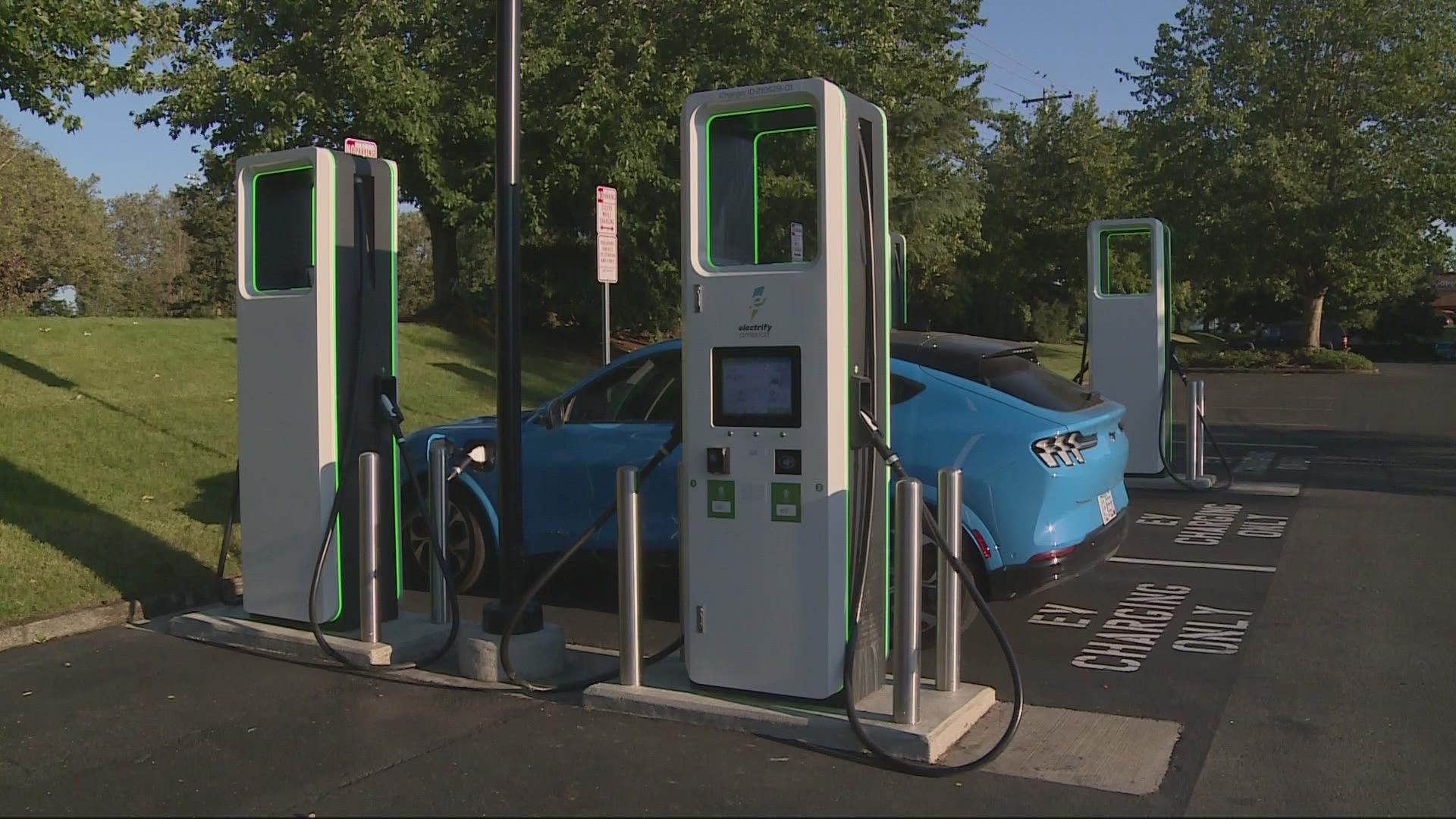SALEM, Ore. — Both California and Washington signaled Thursday that they plan to adopt aggressive emissions targets over the next decade, such that new gas vehicles will be phased out entirely by 2035. While not necessarily at the same place in the process as its two neighbors, Oregon could follow suit in due time.
KGW reached out to Gov. Kate Brown's office to ask what Oregon's plans were. In a statement, a spokesman said that the state is already in the process of developing its own regulations of this kind — "similar," at present, to California's.
"Governor Brown is committed to tackling the climate crisis with urgency, which is why under her leadership Oregon has taken a comprehensive approach to reducing carbon emissions and moving towards a clean energy future," said Charles Boyle, deputy communications director for Brown's office.
A key part of the governor's climate plan has been focused on reducing emissions from the transportations sector, Boyle said, and Oregon has already set goals for electric vehicle adoption — particularly for those in rural communities, for people of color and those with lower incomes.
"Oregon was the first state in the nation to allow electric vehicle rebates for used car sales –– a policy recently adopted by the federal government in the Inflation Reduction Act and which makes electric vehicles more accessible to low- and middle-income families," Boyle said.
Oregon recently hit a milestone of having 50,000 electric vehicles on the road. Meanwhile, the state submitted a 5-year plan for electric vehicle charging infrastructure, which is required under the Bipartisan Infrastructure Law.
But a major shift came this week, when the California Air Resources Board approved something called the Advanced Clean Cars II rule. The regulation requires that automakers quickly work to provide only zero-emission vehicles by the 2035 model year, with that phase-out beginning in 2026.
According to Boyle, Oregon is already working to develop its own regulation based heavily on the California rule.
Next Tuesday, the Oregon Department of Environmental Quality convenes the very first meeting of the "Advanced Clean Cars II Rule Advisory Committee," where the details of that regulation will begin to be discussed.
When asked for comment, the DEQ issued a statement regarding California's adoption of the new regulation:
“Today, California approved the Advanced Clean Cars II Rule, which is landmark regulation requiring auto manufacturers to rapidly increase sales of new passenger cars and trucks to 100% zero-emission vehicles by the 2035 model year and reduce smog-forming emissions from new internal combustion engine vehicles. Oregon is moving forward with a proposed rule similar to California’s Advanced Clean Cars II regulation, which is vital to help achieve greenhouse gas emission reduction targets across the state and result in improved air quality and public health outcomes.
“The regulation will lead to the production of high-quality electric vehicles and ensure long-lasting emissions benefits. It will also support the development of a robust used zero-emission vehicle market, which will help to advance equitable access to clean mobility solutions and related emissions reductions in low-income and frontline communities.”

